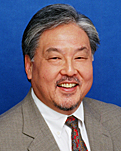US-Japan Trade Pact Boosts Organic Ag
A United States-Japan agreement that recognizes each country’s organically-certified farm products was announced today by the US Department of Agriculture.
Beginning Jan. 1, 2014, organic products certified in Japan or in the United States may be sold as organic in either country, under the new agreement.
The agreement will streamline US farmers’ and processors’ access to the growing Japanese organic market, benefiting the rapidly growing organic industry and supporting business growth on a global scale, said a USDA release.
Before the agreement, organic farmers and businesses had to obtain separate certifications to meet each country’s organic standards — two sets of fees, inspections and paperwork.
Hawaii Department of Agriculture Chairman Russell Kokobun said he’s “happily surprised” that the agreement was reached quickly. “I knew it was being discussed.”
Kokubun, a former Hawaii County Council member and state senator from Puna, said Kona coffee already operates under a similar kind of agreement. Thursday’s announcement formalizes the acceptance of certification for all organic agricultural products traded between the US and Japan, he said. “It will help stimulate more production.”

Russell Kokubun, chairman of the state Department of Agriculture, said the new agreement could stimulate agriculture. File photo.
US Trade Representative Michael Froman said the agreement is “another key step in strengthening our economic relationship with Japan … leading to more jobs and economic benefits for American farmers and businesses.”
A hurdle for Hawaii organic growers however is the lack of a certifying agency for organic agriculture in Hawaii. Larger growers may be able afford certification on the mainland but it’s not feasible for smaller growers, Kokubun said.
The Hawaii Organic Farmers Association, which was once the certifying agency for the Big Island and has since discontinued the service, could not be reached for comment.
Whendi Grad, who’s owned Big Island Bees in Kealakekua for six years, was certified organic by a mainland company and sells close to 900 cases of certified organic ohia lehua honey to Japan each year. However she doubts her honey is being marketed in Japan as certified organic.
Under the new agreement, Grad sees a “broadening of the market” in Japan that will put a higher premium on organically-certified products. “I’m really curious to see what happens.”
Kokubun added that with increasing concern in Japan over the quality of agricultural products from the Fukushima region, stricken by the 2011 tsunami and resulting nuclear disaster, Japanese consumers are looking elsewhere for a better assurance of safe food.
“To gain entry into that market is huge,” Kokubun said. “We need to buckle down and increase our production and our quality.”
The organics sector in the US and Japan combined is valued at more than $36 billion, the USDA reported.
For more on the agreement, go to: http://www.ams.usda.gov/NOPTradeJapan.






